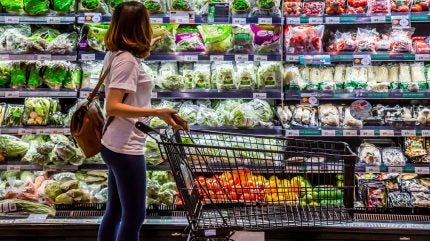
UK total retail sales saw a 2.6% increase in January 2025, outperforming the 1.2% growth recorded in the same month of 2024, according to data from the British Retail Consortium (BRC) and KPMG retail sales monitor.
This growth, which marks a positive start to the year, surpasses the three-month average growth of 1.1% and the 12-month average growth of 0.8%.
During the month, sales in the food category grew 2.8%, although this was slower than the 6.1% growth seen in January 2024. It still outpaced the three-month average growth of 2.3% but fell short of the 12-month average growth of 3%.
Sales in non-food stores also rose 2.5% during the month, a significant improvement from the 2.8% decline in January 2024.
This increase exceeded both the three-month average growth of 0.2% and the 12-month average decline of 1.1%.
In-store non-food sales posted a 2.6% increase, compared to a 2% decline in January 2024. This was higher than both the three-month average decline of 0.7% and the 12-month average decline of 1.7%.
Online non-food sales rose by 2.2% in January, reversing the 4.2% decline seen in the same month of 2024.
This growth was stronger than the three-month average of 1.8% and the 12-month average of 0.1%.
However, the online penetration rate for non-food items decreased slightly to 35.7%, down from 35.8% in January 2024, and below the 12-month average of 36.7%.
BRC chief executive Helen Dickinson said: “January sales kicked off a solid month for retail with stores delivering their strongest growth in almost two years, albeit on a weak comparable.
“While the bouts of stormy weather put a temporary dampener on demand, sales growth held up well throughout the rest of the month. This was also helped by the earlier start of the reporting period, adding a few more post-Christmas shopping days into the mix.
“Whether this strong performance can hold out for the coming months is yet to be seen. Inflationary pressures are rising, compounded by £7bn of new costs facing retailers, including higher employer national insurance contributions, a higher National Living Wage and a new packaging levy. Many businesses will be left with little choice but to increase prices and cut investment in jobs and stores. Government can mitigate this by ensuring its proposed business rates reforms do not result in any shop paying more in business rates.”



